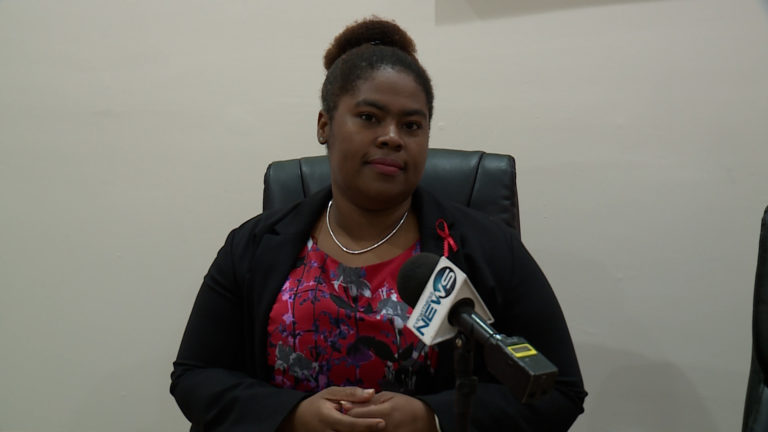125 new infections recorded in 2019
NASSAU, BAHAMAS — The Bahamas recorded 125 new infections of HIV in 2019, indicating a significant decrease in the spread of the virus in the country, according to Acting Director of the National HIV Centre Nurse Branishka Lewis.
In an interview with Eyewitness News yesterday, Lewis spoke to the successes of The Bahamas over the last 40 year, which show that HIV/AIDS is no longer a death sentence, and of the country’s efforts to implement modern treatment.
“We have seen great decreases in the amount of new infections overall,” she said.
“ln 2019, we had 125 new cases. In the past, we had upwards to 300, 400 new cases in a year, so now we’re down to 125.”
Lewis attributed the country’s successes in the HIV/AIDS fight to increased testing, educational programs and access to free medication.
She noted that the country’s prevention of mother-to-child transmission program is currently a gold standard.
She advised that in 2019, there were zero cases of mother-to-child transmission of HIV. She compared it to the early ’90s when there was 40 percent transmission.
“The medication is easier to access and it’s easier to take,” she said.
Lewis explained that while some patients were burdened with having to take multiple pills throughout the day, that has been decreased to one single pill a day.
Just over half of the 6,000 people infected with HIV in The Bahamas are on treatment, according to a UNAIDS 2019 report.
The report, released in December 2019, shows that 3,100 people or 52 percent of people with the immunodeficiency virus are on treatment.
This includes 40 children under 14 years old; 1,500 women; and 1,600 men.
Over the years, access to treatment for HIV in The Bahamas has progressed, including free services such as doctor visits, blood work, medication and prescription, as well as the decentralization of services at Princess Margaret Hospital on one day, to multiple clinics on multiple days of the week.
Lewis noted that The Bahamas has also introduced access to PrEP (pre-exposure prophylaxis) treatment — a daily medicine used to reduce the risk of becoming infected with HIV if exposed to the virus — which has also aided in preventing the transmission of the virus.
She added, however, that there is still more work to do, including breaking the stigma surrounding the virus.
“One of the ways we’re going to work and beat stigma is through education and making the public more aware of HIV/AIDS…so they are not as ignorant to what is happening or as fearful and they know what options are available out there.”
Every year, on December 1, the world commemorates World AIDS Day, with people around the world uniting to show support for those living with and affected by HIV and those who lost their battles with the disease.
Annual deaths from AIDS-related illnesses declined by 37 percent from 2010 through 2019 in Caribbean countries, while new yearly infections from the HIV virus dropped by 29 percent, according to the Pan American Health Organization (PAHO).
Increased testing and improvement in the delivery of lifelong antiretroviral treatment led to the decline in annual deaths from about 11,000 in 2010 to 6,900 in 2019, PAHO said, based on recently available data.


